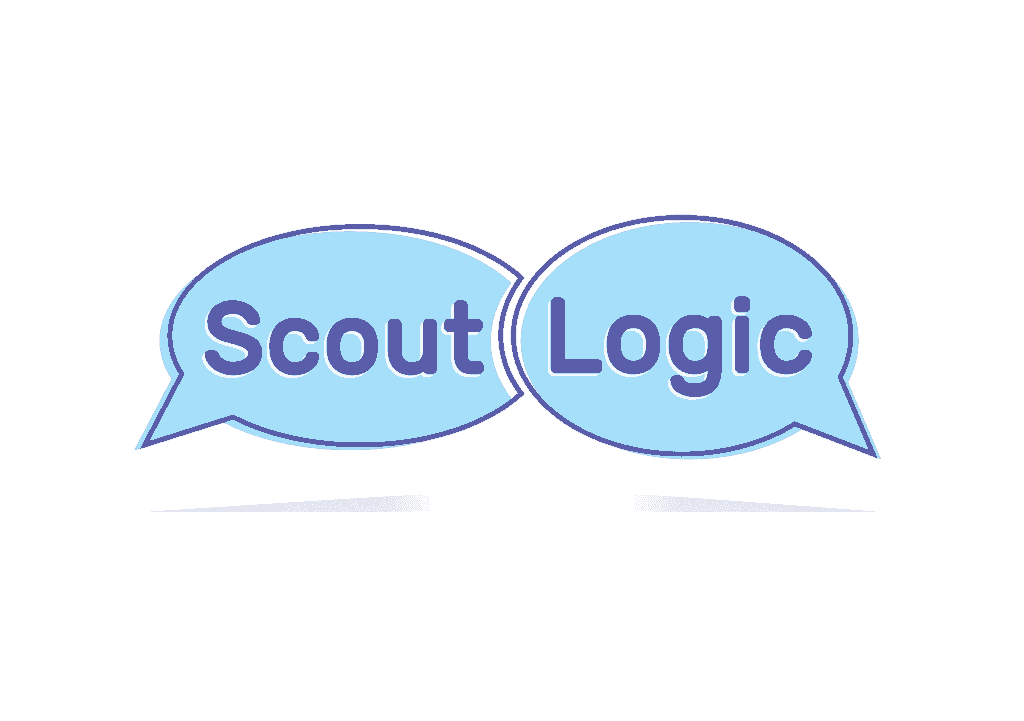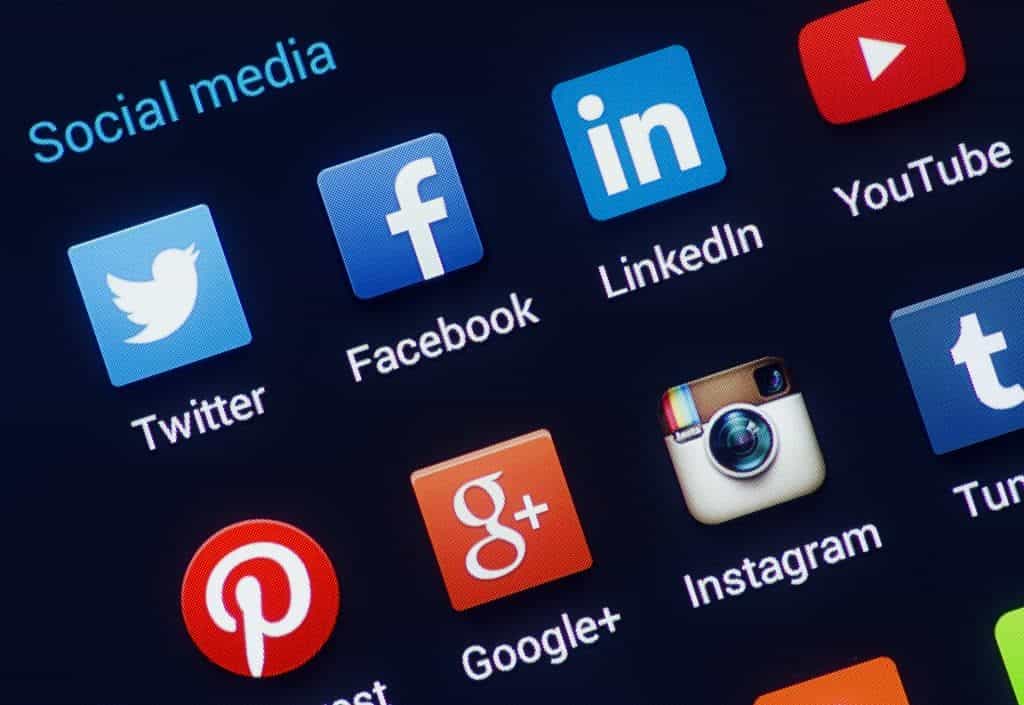My business has taken about a 50% hit to revenue during the Coronavirus pandemic and left me in doubt. How can I adapt my business model to the new normal? I consulted multiple CEOs and Founders on action steps to adapt your business model to make it through the Coronavirus pandemic, Great Recession, or literally any other crisis like consumer spending habits, building fire, an employee that embezzles, and so much more.


David Garcia, CEO, ScoutLogic
Ensure adequate cash flow
Ideally, you should have 1-3 months ofexpenses available via credit cards or lines of credit. Depending on your business history, lenders are often willing to do unsecured lines of credit. You will want to ensure your personal credit history is strong, your business financials are organized through a program like QuickBooks, and you will want to network with community lenders who are more flexible than the big banks.
Focus on different customer types.
If a crisis has impacted your revenue, quickly evaluate the industries of clients that are still spending or buying services. With Covid, we found our hospitality clients were not ordering, but those tied to essential industries like Healthcare were running lots of background checks. We pivoted our sales and marketing resources towards those types of clients to help recover revenue.
Upskill with eLearning.

Crisis brings opportunities to learn new skillsto deal with challenging times. For example, who would have thought you would have to figure out to run a business remotely in 2020? The great news is there is so much free or low-cost online education available now; you can take classes to help you navigate the situation. I am spending 1-2 hours a day across LinkedIn’s and Hubspot’s eLearning modules to learn what I need to get through these challenging times.
Ryan Novak, Owner, Chocolate Pizza Company

Develop a strategy for crisis management
The key to surviving a major disruption to your small business whether it is a COVID-19 shutdown, major natural disaster, terrorist attack, financial market collapse or other catastrophe is to anticipate the possibility and plan ahead. We found out in this crisis that the internet was our lifeline. We started over 2 years ago investing in upgrading our online presence and capability including updating our website, prioritizing SEO, strengthening domain authority and building up our social media. The investment in our online presence would pay immediate dividends when we were forced to close our retail store.
As a chocolate maker, we also built modest inventories of critical ingredients and packaging so we could absorb at least an initial disruption in procurement. Having supplies on-hand didn’t eliminate the pressure on keeping the operation running but it bought us time by pushing those do-or-die points farther out, so we had time to react.
Lean on Social Media
The power of social media in a crisis cannot be overstated for small businesses. The network you have in place on Facebook, Instagram, Twitter and other channels instantly becomes your only marketplace when normal operations are disrupted. Again, we had spent the last several years building our presence on social media with particular emphasis on Facebook and Instagram. We had grown from a few thousand followers to over 50,000 on Facebook and nearly 20,000 on Instagram. Those are small potatoes if you are a Hollywood influencer but if you are a small business those are solid communities of people with an interest in your products.
When the crisis hit, many of those “followers” became customers and those customers became ambassadors who shared our business with their friends and family. We posted daily and took time to upgrade the quality of our pictures so our content respected people’s trust in our products. Keep the tone of the posts positive, optimistic and forward looking. We create gourmet chocolate gifts so we kept the focus on how our products could help people find a bit of normalcy in their lives or celebrate a holiday or birthday when you’re stuck at home. We talked about sending sweet surprises or thank you gifts or fun ways to engage the moment like our “Stay Home, Love, Mom” Chocolate Pizza. People need every dose of positivity they can find in a crisis and if they find it for a few minutes on our social media pages then they will stay connected to us.
Engage with your community
This one is personal for me. My mom was killed when I was 9 years old by a man high on drugs who ran a stop sign as she drove home. It was a nightmare that devastated me, but my community stepped up. In countless acts of kindness, people we knew and, most we didn’t, helped me and my dad through that tragedy. That hometown connection has stayed with me. I kept my business here because of that bond. It taught me to lean on your neighbors when times are tough because they’ll be there when you need them. And in this crisis, they have.
People are willing to spend their money close to home with people they know. They take pride in successful small businesses in their communities. They like having that personal connection to the products they buy. Yes, they will shop the big box stores for a bargain but when it matters most they will rally to the little guy because they know the owner’s name, they see them sponsoring a youth baseball team, donating to the local food bank or offering fundraisers for the schools. We had done all those little things over the years as a normal course of business, as part of being responsible members of our community. Now, our community was returning the favor.
We had to switch to all online sales so our local patrons, who were used to walking in our door, switched with us. They were the curbside pickup business that kept coming back week after week. They were the customers who sent our products out of town as gifts. We live and work in a small town that has one stop light and maybe 6,000 people but, in a crisis, they showed up and stood by us. And so did the next town over, and the next; one neighbor at a time telling us with each order that they valued our business and wanted us to weather this storm. They don’t teach it in college, and it doesn’t show on a balance sheet but “buy local” is an asset that matters.
Focus on inventory management
You remember the old movies when the ship was caught in a gale and the captain ordered the crew to throw everything that wasn’t nailed down overboard to lighten the ship so it would handle better. Well that’s sound advice for small businesses in a crisis. Don’t try to do everything, just keep doing something. Strip down your product line to items you can most easily manage and focus your efforts on providing the best customer service for those things.

We were not afraid to tell customers that we didn’t have a particular requested item right now, but we did have this other item available. In almost every case, people understood and would order what we did have. People know these are not normal circumstances and they will accept that you are doing your best. In a crisis, you cannot pretend that everything should run like it did before the disruption – it won’t, and the added pressure of trying to operate like that only worsens your position. Instead, put your efforts into a streamlined operation that still provides quality products and service.
Innovate
They say necessity is the mother of invention. I agree. Ideas that lay dormant sometimes blossom under duress. For example, we had never offered free shipping on our website because we did not think we could make the numbers work. We talked about it numerous times but always found an excuse for not implementing it. The day after New York ordered most retail stores to close including ours we decided desperate times call for desperate measures. We put in free shipping on orders over $35 to one destination and instantly our online sales exploded. We did more online sales in the month of April than we did in the first 9 months of 2019. It was unbelievable.
Now, that explosion in online sales was not completely attributable to implementing a free shipping threshold. There were a lot of factors in play like unprecedented number of people home browsing the internet, Easter falling in April and virtually no walk-in retail options for shopping. But, the impact of adding a free shipping option into the equation ended up multiplying our orders. Obviously, the added cost puts significant pressure on our margins but in a crisis, you worry less about what you’re making on each sale than you do on just making a sale. Keeping the ship afloat is the objective and we did that in part because we acted outside our comfort zone.

Teri Fisher, CEO & Managing Partner, Insight Strategies, Inc.
Overcommunicate
In times like this, there’s no such thing as overcommunicating. What we often see in our consulting experience is an emphasis on external communications, marketing, and branding while internal communication is an afterthought and therefore rises to the top as a major issue. Add a crisis on top of that, and a major disconnect occurs.
According to one of our recent client surveys that elicited employee and leadership needs during the crisis, respondents were asked,“What support do you most need to navigate your team and yourself through this uncertainty?”42% desired better communication from leadership. One respondent said, “Our department head sits in his office with the door shut…all day. Offers no support, no guidance, no positive reinforcement.” When employees are feeling alone, disappearing as a leader is not an option.
In the absence of information, communication, and leadership, employees will fill in the gaps with negative assumptions, gossip, rumors, resentment, and feel insecure. Organizations should bring employees along in what leaders are thinking, designate an internal communications point-person, and craft messaging plans and scripts that are used by all leaders to ensure message frequency and consistency. Soliciting employee questions often and responding with truth is crucial, as opposed to, the all too common, sell-and-tell approach—persuading instead of listening.

Support you Team
To make it through these turbulent times, a company’s active workforce is their lifeline. According to our client survey, businesses’ top two greatest leadership challenges during the COVID-19 crisis have been addressing employee fears/concerns (42%) and motivating employees to continue their work (42%).
To address employee fears and concerns, leaders should be checking in often, listening, and of course, providing access to employee assistance programs, if they’re available. Staff meetings should be posing the question, “Who’s heard the best rumor lately?” This allows leaders to surface and understand employee concerns, nip bogus information in the bud, and replace fodder with facts.
To keep employees motivated, employers should focus on what can be done versus what can’t be done. In Stephen Covey’s Seven Habits of Highly Effective People, he introduces a concept that reinforces this fact—Circles of Influence (things we have control over) and Concern (things we have no control over).
During times of crisis, employees’ circle of concern grows larger and in today’s case, is exacerbated by negative news stories, while they experience their circle of influence as shrinking –real or not. To keep employees motivated, encourage employees to limit news intake and instead focus on things that are within an organization’s and employee’s control such as allowing them to participate in decision-making, giving kudos frequently, and everyday sharing the good news.
Think Beyond the Crisis
With the COVID 19 impact seemingly taking up all our mental space, thinking beyond tomorrow seems inconceivable and insurmountable but organizations must. Organizations must envision their future state as it transitions out of this crisis and enliven teams to join in this effort. What needs to happen now to better position the business later?
It’s like a rose bush—what pruning needs to happen for full bloom later? Winter pruning allows a business to assess its strengths and weaknesses of each bush. The unimpeded view allows them to cut away dead wood and thin overfull areas of their rose bush. Winter pruning primes their plants for spring growth. ¹Health clubs, movie theaters, and restaurants are already planning for social distance spacing given the mental conditioning that’s been created by this situation.
Post-lock down, they’re anticipating making this adjustment while perceived customer fears could very well outlast the reality. Organizations shouldn’t waste this unique moment in time. It should be milked for all it’s worth. This time should be used as a time to be conscious and reflect on reshaping business, rebuilding teams, and transforming as leaders.
There’s a centuries-old Japanese art form called Kintsugi which centers on the repairing of broken pottery and patching its imperfections and cracks with gold. This art form is based on the philosophy that the pot’s brokenness actually enriches the pot, mends the scars with new life and allows it to emerge as more interesting and beautiful. That’s what this time can be about—collecting the broken pieces, rebuilding, and emerging elegantly transformed.

Paige Arnof-Fenn, Founder & CEO, Mavens & Moguls
Network, Network, Network
Most of my work comes from networking and I have found that building relationships is what drives my business and technology supports them once they are solidified. Technology helps advance the conversation but it will never replace the human interaction that builds trust over time. CRM tools are only as effective as the relationships you have built.
I recommend disconnecting from technology periodically and focusing on cultivating direct relationships while social distancing. Meeting for coffee or lunch even virtually can accomplish so much more than e-mail exchanges, social media posts, etc. and it is a great way to get to know people better, their interests, hobbies, and dreams. It is impossible to time your outreach so that you are in front of clients exactly when they need your help so I just try to stay in regular communication with them so that when they have a problem I can help them solve they will think of me first. We are all in the relationship business after all.
Wasn’t it Woody Allen who said 90% of success is just showing up. It is a strategy that has worked for me. To stay connected I am a big fan of e-mail outreach. It is a cost-efficient way to stay connected and deepen your relationships through ongoing communication. If you prefer to text that works too just send a few each week to tell people you are thinking of them.
Focus on Social Media
This is also a great time to build your brand through online marketing and social media. Social media and technology are 24/7 so it is easy to get sucked into it but we have learned you do not have to let it run your life!
My advice is to pick a few things you enjoy doing and do them really well. You cannot be everywhere all the time so choose high impact activities that work for you and play to your strengths. For networking I think people need to be on LinkedIn so that they can be found. It adds credibility and transparency when you know the people you are meeting or working with know people in common.
LinkedIn has become more than an online resume or rolodex, it is the foundation for building trusted relationships in the digital economy. You do not need to blog or be on all social media platforms but make sure you are active on the ones where you are. If your customers do not use Facebook, Twitter, or Instagram to find you then you do not need to make them a priority. For many professional service businesses like mine, LinkedIn matters the most. These ideas do not require big budgets but they are productive ways to stay connected during the crisis and beyond.

Focus on being productive
We have learned in this crisis that it is about touching people in meaningful ways which may mean being less busy not more for a while. Online meetings, webinars, social media, etc. are a smart and productive way companies like ours can continue to have conversations that educate and inform, build relationships and move forward during this crisis period. Once we lay this groundwork it all will be in place to continue moving forward as the economy reopens and some businesses come back quicker than others.
I predict the most trusted leaders and brands will have a big competitive advantage in the new normal that evolves in a post-Corona world. Employees, customers, and clients will remember who treated them well during the crisis and they will be rewarded with loyalty from earning that trust during the bad times. The current crisis has provided a stage for our political and business leaders to rise to the occasion.
Maybe the silver lining is that this crisis reminds us that we have always needed each other and we have learned that everyone is struggling right now to find a new normal so the key is to show our humanity and compassion while we look out for one another. With Zoom, social media, cell phones, etc. we see that technology does not have to be isolating it can be used to build our real-world communities and relationships too!

Laurel Mintz, CEO and Founder, Elevate My Brand
Double Down on Digital Spends
A lot of businesses are scared, and they should be. Because they’re scared, they’re questioning their marketing and advertising spend. Don’t be one of those companies. Now is the best time EVER to double down your dollars so that you can capture more market share. It may sound a bit callous, but we saw the same thing happen in 2008/2009, and the smarter companies that survived and thrived turned a challenging time into an opportunity to grow. It will be good for you long-term and is the right thing to do to keep the economy going.

Get More Social (Online)
I don’t know about you, but I’ve cancelled most of my social and business plans. This has left me feeling totally disconnected and frankly a bit lonely. That’s why now is a great time to start or increase your social media content. Act as if things are as normal as possible and talk to your community through your social channels. More than just talking at them, start a dialogue and use these challenging times to truly engage your community in honest conversations about what you’re doing to support them and how you’re working towards business as usual. Make them feel the love even if it’s only online. (P.S. Social media views and engagement have increased by over 30% in the last two weeks, so give the people what they want where they want it.)
Put Your People First
I know this sounds like a no-brainer, but there are still a lot of companies out there that don’t have emergency protocol around this virus. Worse yet, there are a lot of employees who, if they don’t show up physically to work, don’t get paid. There’s no other way to say this than don’t be a d*&k! Like us, I’m sure many of your employees have kids and, with the recent school shutdowns, are feeling the pressure more than ever before. We live in amazing times where a ton of work can be done remotely. When you treat your employees with respect and let them put their health and families first, they will be more loyal and committed to the work and will likely maintain productivity and service levels, and that’s good for business and morale alike.
Convert, Don’t Cancel
Brands that rely on fundraising efforts like non-profits are rightfully freaking out right now. Many events and galas have been cancelled and the teams behind them don’t know how they’re going to raise the working capital they need to maintain their staff and support the work they’re doing in the community. We have seen smart companies both in the for- and non-profit worlds quickly convert events and fundraising to digital. Whether it’s micro-donations through social media or crowdfunding platforms, there are tons of great digital tools, if done right and quickly, that can slow the decline of fundraising efforts. There are also tools out there such as Zoom that can supplement the intimate connections between donors, keep meetings on track, and keep communities and communication flowing. So don’t cancel that meeting, just convert it to a Zoom and keep things moving forward as normally as possible.
Content Is (Still) Critical
Let’s be honest, with everything canceling and everyone wondering what to do next, most businesses have a lot of unexpected time on their hands right now. Look at it as an opportunity to develop quality content for your digital channels and to set yourself up for a successful future. Use Google Docs to collectively ideate ad concepts. Use Zoom to interview employees for human-interest story vlogs. Use a project management platform to make a more robust marketing plan. We know how hard it can be for brands to devote time to building out their content calendar, so take this time to write blogs and prepare email campaigns and audit your content. Because when you come out on the other side of this thing, we’ll all have to hit the ground running.
Wrapping it all up
Right now we are dealing with Covid-19, and it has put a huge strain on every single business, employee, and child in the world.
The healthcare system is overloaded with Covid-19 patience, while lacking business in elective procedures, adding costs and the need for certain resources while reducing income.
Retailers like Walmart, Target, and Amazon are struggling to keep up with the increased store traffic, online sales, and the need to stay stocked and ship products in a timely manner. This is causing increases in their revenue, but they are struggling to keep staff at work and safe, stores and distribution centers safe and clean, and products delivered as their customers expect.
While other major retailers like Neiman Marcus, JC Penny, and J. Crew have filed for bankruptcy from a number of ongoing issues compounded by the current crisis.
Many restaurants are on the brink of collapse with predictions that 25% or more will not make it through the crisis. Even with the states starting to open up for business, most restaurants still will not be able to pay their bills at 50% capacity.
Small businesses are seeing reduced revenue and being forced to furlough or layoff their employees and depending on your industry, the root causes are varied.
No matter which scenario you fit into there is a ton of great info from these wonderful CEOs and founders and I think that there is at least 2 or 3 that you can take right now and run with to start reinvigorating your business.



